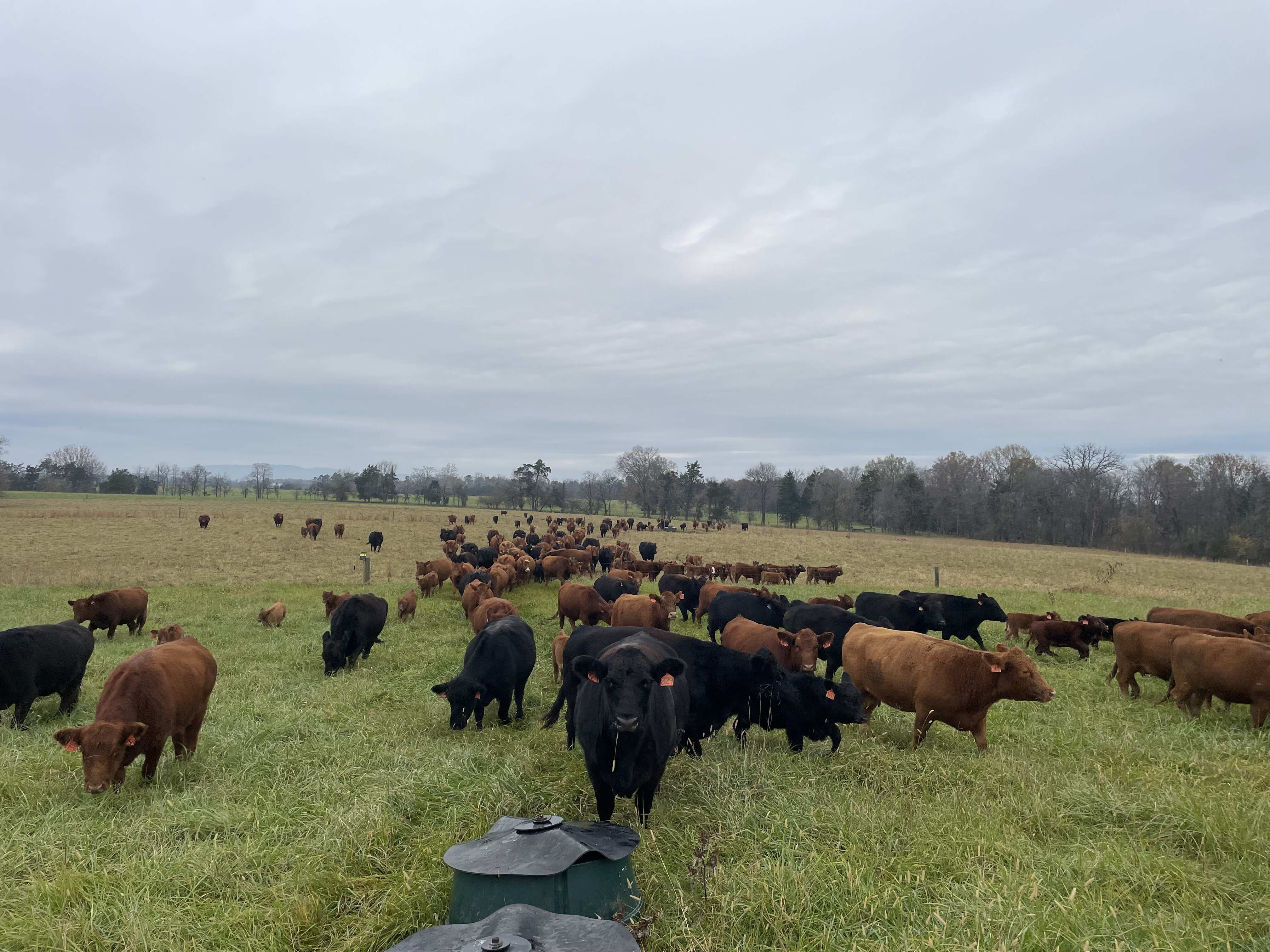A Trip Down the River
posted on
September 18, 2024
Garrett and I recently had the privilege of stepping away from the farm for a special trip to the mouth of the Rappahannock River. We joined some fellow producers through American Farmland Trust and Friends of the Rappahannock for an eye-opening experience. We had the unique opportunity to see firsthand how the regenerative farming practices we’re dedicated to at Rucker Farm directly impact the oysters and aquatic life downstream in our watershed. It was a powerful reminder of how connected we all are to the land and water around us. It's neat to reflect on how we began the season in April learning from our friends at Smoke in Chimneys about spring-raised rainbow trout, and now we find ourselves in the Chesapeake Bay, diving deeper into aquaculture and learning from businesses completely redefining what fish farming means!
The Journey of Water from Rucker Farm to the River
One fascinating detail shared with us is that it can take up to one month for the rainwater that falls on Rucker Farm to reach the mouth of the Rappahannock River. This highlights how deeply interconnected our farm is with the surrounding environment. Through regenerative practices like stockpiling pasture, avoiding overgrazing, buffering livestock from bodies of water, planting trees in riparian zones (areas near streams and rivers), and monitoring erosion to prevent runoff, we aim to keep as much water as possible within our soil and filtered by our roots. By doing so, we contribute to healthier waterways downstream and help maintain the balance of our ecosystem.
The Oyster: A Vital Part of Our Ecosystem
Did you know the average oyster takes 2-3 years to reach the "ready to eat" size? Incredibly, they are more than just a delicacy—they're essential to the health of our waterways. Wild oyster populations have declined to just 1% of what they were in the 1800's, a staggering statistic that highlights the importance of conservation efforts.
Oysters are natural filter feeders, meaning they draw in water, filter out pollutants like nitrogen and phosphorus, and release cleaner water back into the ecosystem. One adult oyster can filter up to 50 gallons of water a day! By improving water quality, they support the overall health of marine habitats and the creatures that depend on them.
Filter Feeders... Are They Actually Safe to Eat?
Absolutely! Thanks to rigorous monitoring and sustainable farming practices, oysters are not only safe to consume but are also packed with health benefits. They're rich in nutrients like omega-3 fatty acids, zinc, cooper, iodine, selenium, and vitamin B12, which support heart health, boost your immune system, and provide energy.
In fact, for my last two pregnancies, I have taken an oyster supplement called Oyster Max as one of my prenatal vitamins. According to the book Real Food for Pregnancy by Lily Nichlos, oysters are considered "Mother Nature's prenatal" due to their impressive vitamin and mineral components. The nutrients found in oysters are incredibly beneficial for both mothers and babies, making them a fantastic addition to a prenatal care routine.
Why Should We Care About the Oyster Industry?
Supporting the oyster industry means supporting cleaner waterways, healthier marine ecosystems, and sustainable farming practices. The Rappahannock Oyster Company, a leader in sustainable oyster farming, is dedicated to cultivating oysters in a way that enhances water quality and restores native oyster reefs. Their efforts help balance the delicate ecosystem of the Chesapeake Bay, while also ensuring we can continue enjoying oysters for generations to come.
Likewise, Friends of the Rappahannock focuses on protecting and restoring the Rappahannock River through education, advocacy, and hands-on conservation projects. Their work ensures that the river stays clean and healthy, benefiting not only the oysters but also the entire community that relies on this vital watershed.
The work we do at Rucker Farm, and the efforts of oyster farmers downstream, help ensure that we can all enjoy the benefits of oysters—from their role in filtering water to their role on our plates. This experience reaffirmed our commitment to regenerative farming, not only for our land but for the entire ecosystem we share.
We’re so grateful to have shared this meaningful experience with such a dedicated group of people. Thank you for supporting our farm’s mission to preserve and nurture the land we all depend on.



